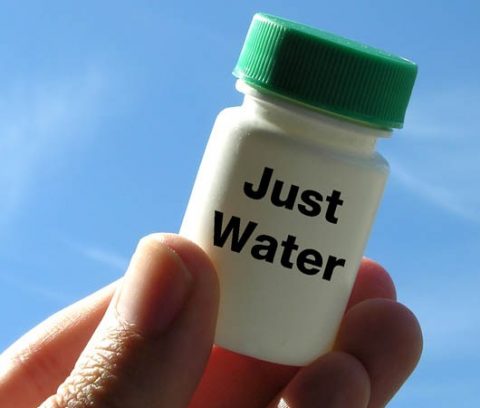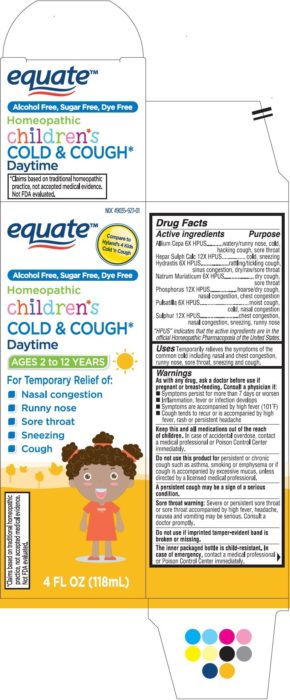May 21 2019
The Inherent Contradiction of Marketing Homeopathy
 The Center for Inquiry (CFI) is suing Walmart for their marketing of homeopathic products, similar to a prior lawsuit against CVS. Their claim is that Walmart is using deceptive practices to sell homeopathy, implying that such products are equivalent to science-based remedies. While I applaud their effort, you can tell by reading the reporting that it is ultimately an exercise in futility.
The Center for Inquiry (CFI) is suing Walmart for their marketing of homeopathic products, similar to a prior lawsuit against CVS. Their claim is that Walmart is using deceptive practices to sell homeopathy, implying that such products are equivalent to science-based remedies. While I applaud their effort, you can tell by reading the reporting that it is ultimately an exercise in futility.
First let me clearly state my underlying premise – homeopathy is pure 100% nonsense. It is a 200+ year old pre-scientific system of potions with no basis in reality. It is simply witchcraft. And if that is not enough for you, it has been tested in clinical trials (despite being utter nonsense) and has been convincingly, and unsurprisingly, shown to have no effect.
The inherent contradiction this undeniable fact creates is, how do you market homeopathic products without deception and harm? The answer is – you can’t. The only way to actually sell the product is to deceive the customer on some level.
The FDA and FTC have tried to strike a balance between freedom and consumer protection when it comes to homeopathy, but this is a hopeless endeavor. There is no balance. So they each have their guidelines for the industry to promote transparency, honesty in labeling, and to minimize deception. Of course these regulations don’t go far enough. They just mean the industry has to be a little more clever and coy in their marketing.
 This is where the CFI lawsuit comes in, which states:
This is where the CFI lawsuit comes in, which states:
“Walmart uses the trust placed in it by customers as a provider of medicines to profit from the sale of these products in full knowledge of the absence of evidence for their efficacy,” reads the CFI complaint. By “displaying homeopathic products alongside science-based medicines, without any distinction between them, Walmart is failing to provide truthful information to its customer base, and deliberately creating the false idea in its customers that there is no difference between these two radically different sets of products, in violation of D.C. law.”
OK – so what is the solution?
Their suggested warnings, however, seem unlikely to be adopted by any retailer that wants to actually sell products. The labels would state: “There is no scientific evidence that the product works,” and, “the product’s claims are based only on theories of homeopathy from the 1700s that are not accepted by most modern medical experts.”
Little concedes, “It’s asking a lot from the retailer,” but on the other hand, it’s not requesting anything beyond what’s required by the FTC.
Where the lawsuit is useful, I will say, is in focusing on the retailers. The FTC and FDA focus mainly on the manufacturers, and what they can put on their products. The lawsuit focuses on the retailer, and how they are marketing these products to their customers. But the problem is the same at either level – real transparency and truthfulness in labeling and marketing would effectively kill the homeopathy market. Let’s face it – if homeopathic products were kept in a separate section, products were not allowed to make or imply any clinical claims (because none have been demonstrated), and were completely transparent about their ingredients (most have none at all except water or sugar pills), and the fact that their underlying premises are not based on science and have been effectively demonstrated to be false, who would buy them? I actually think the display case should have moons, stars, and wands depicted on them as fair warning that the product are magic. Alternatively, a witch with a cauldron would work.
If customers were given real consumer information, so that they adequately understood exactly what homeopathic products are and could make a properly informed decision, I won’t say no one would buy them, but the market would collapse to a tiny fringe.
CFIs position mirrors the law and therefore that of the FDA and FTC –
To be clear, CFI does not seek the removal of these products from Walmart or other stores. “Homeopathic products are legal, and adults have a right to purchase them regardless of their lack of efficacy,” it clarifies. Instead, the organization seeks to ensure retailers properly label products and keep science-based medicine from being sold side-by-side with homeopathic products.
Again, they have no choice really given the current law. As they say, they are legal. That, of course, is the problem. Essentially, these inherently fraudulent products are legal, and regulatory agencies and consumer protection groups are trying to protect consumers from legal fraud with transparency and labeling.
This, at best, will work as well as regulating the tobacco industry. After banning advertising and requiring warning labels, the industry managed to promote their lethal products through other means, such as product placement, endorsements, and cultural forces. The market, while diminished in the US, is still massive.
To be clear – I agree with the efforts of the FDA and CFI. They are good faith efforts to minimize the harm of homeopathy by reducing the deception and requiring some transparency. It will never be enough, however. You cannot adequately regulate legal fraud. The inherent contradiction will not work. Walmart’s response says it all:
“We want to be the most trusted retailer, and we look to our suppliers to provide products that meet all applicable laws, including labeling laws. Our Equate private label homeopathic products are designed to include information directly stating that the claims are not based on accepted medical evidence and have not been evaluated by the FDA. We take allegations like these seriously and will respond as appropriate with the court.”
The products are legal, and they follow the regulations. But just look at their own homeopathic products. They sell Children’s Cold and Cough – the clinical claim is right in the name. They list “active ingredients” and list the “uses” as “Temporarily relieves the symptoms of the common cold including nasal and chest congestion, runny nose, sore throat, sneezing and cough.”
But they also contain this small disclaimer: “Claims based on traditional homeopathic practice, not accepted medical evidence. Not FDA evaluated.”
And yet, they refer to it as a drug, there are warnings for pregnant or breastfeeding women, and instructions to call poison control for accidental “overdose.” You can’t overdose on nothing.
That is not transparency. The packaging makes every effort to deceive the customer that this is a legitimate health product, and then has a tiny disclaimer which does nothing to undo all this deception. Maybe they are adhering to the letter of the law, but not the spirit. They are motivated to deceive their customers, because they are trying to sell them magic water as if they were real medicines.
The only real solution is to treat fraud like fraud, and not allow any level of deception, especially when it comes to medicine.






